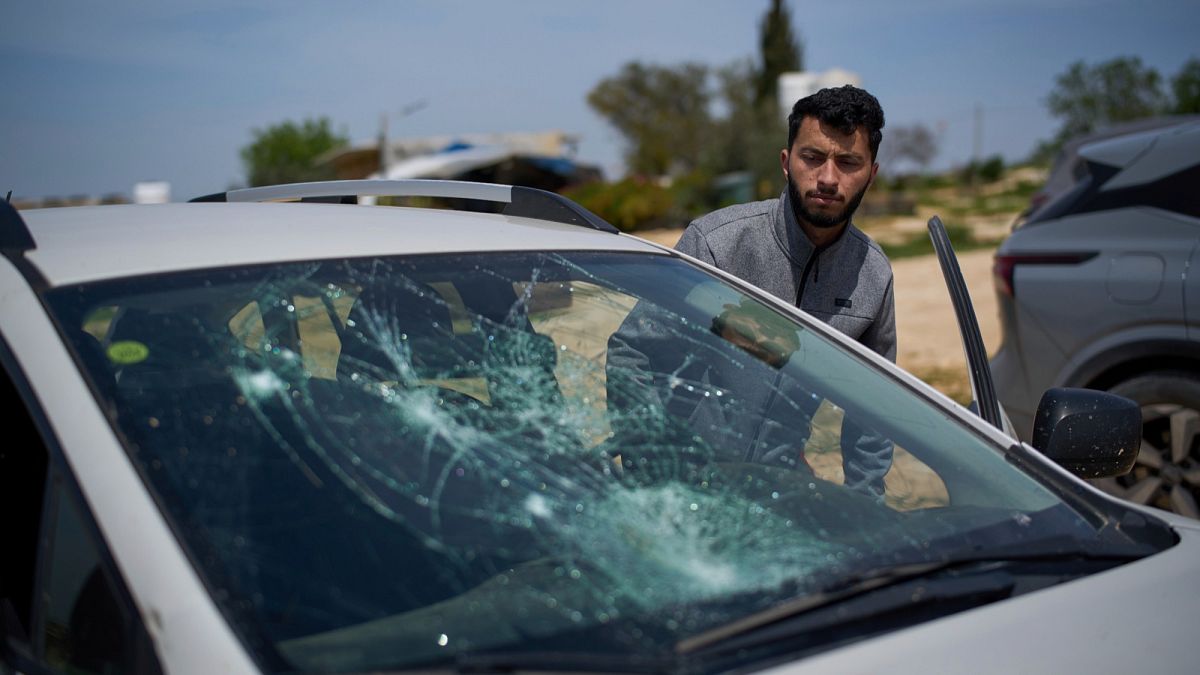Israeli soldiers on Monday barred journalists from entering villages in the West Bank on a planned tour organized by the directors of the Oscar-winning movie No Other Land.
The directors of the deeply compassionate and powerful documentary, which focuses on the systematic Israeli settler attacks on Palestinians in the West Bank, said they had invited the journalists on the tour to interview residents about increasing settler violence in the area.
In video posted on X by the film’s co-director, Yuval Abraham, an Israeli soldier tells a group of international journalists there is “no passage” in the area because of a military order.
Basel Adra, a Palestinian co-director of the film who lives in the area, said the military then blocked the journalists from entering two Palestinian villages they had hoped to visit.
“They don’t want journalists to visit the villages to meet the residents,” said Adra, who had invited the journalists to his home. “It’s clear they don’t want the world to see what is happening here.”
Some of the surrounding area, including a collection of small Bedouin villages known as Masafer Yatta, was declared by the military to be a live-fire training zone in the 1980s. Some 1,000 Palestinians have remained there despite being ordered out, and journalists, human rights activists and diplomats have visited the villages in the past.
Palestinian residents in the area have reported increasing settler violence since 7 October 2023, when Hamas attacked Israel and kickstarted the war in the Gaza Strip.
Israeli soldiers regularly move in to demolish homes, tents, water tanks and olive orchards — and Palestinians fear outright expulsion could come at any time.
Adra said the journalists were eventually able to enter one of the villages in Masafer Yatta, but were barred from entering Tuwani, the village where he lives, and Khallet A-Daba, where he had hoped to take them.
Adra said settlers arrived in Khallet A-Daba Monday and took over some of the caves where village residents live, destroying residents’ belongings and grazing hundreds of sheep on village lands. The military demolished much of the village last month.
No Other Land, which won theOscar this year for Best Documentary, chronicles the struggle by residents to stop the Israeli military from demolishing their villages. The joint Palestinian-Israeli production was directed by Adra, Hamdan Ballal, Palestinian activist from Masafer Yatta, and Israeli directors Yuval Abraham and Rachel Szor.
The film also won Best Documentary at the Berlinale, with Adra using his acceptance speech to say that it was difficult to celebrate while his Palestinian compatriots in Gaza were being “slaughtered and massacred.” He called on Germany “to respect the UN calls and stop sending weapons to Israel.”
Abraham, then took to the stage: “We are standing in front of you. Now, we are the same age. I am Israeli, Basel is Palestinian. And in two days, we go back to a land where we are not equal.”
He continued: “I am under civilian law; Basel is under military law. We live 30 minutes from one another but I have voting rights. Basel does not have voting rights. I am free to move where I want in this land. Basel, like millions of Palestinians, is locked in the occupied West Bank. This situation of apartheid between us, this inequality, has to end.”
At the time, the speeches of Abraham and Adra were criticized by the Mayor of Berlin, Kai Wegner – of the Christian Democratic Union party.
On X, he wrote: “Anti-Semitism has no place in Berlin, and that also applies to the art scene. I expect the new management of the Berlinale to ensure that such incidents do not happen again.”
This led to a massive backlash, and this year, the new Berlinale director Trcia Tuttle addressed the controversy around the film, defending the No Other Land filmmakers by saying that “discourse which suggests this film or its filmmakers are antisemitic creates danger for all of them, inside and outside of Germany, and it is important that we stand together and support them.”

